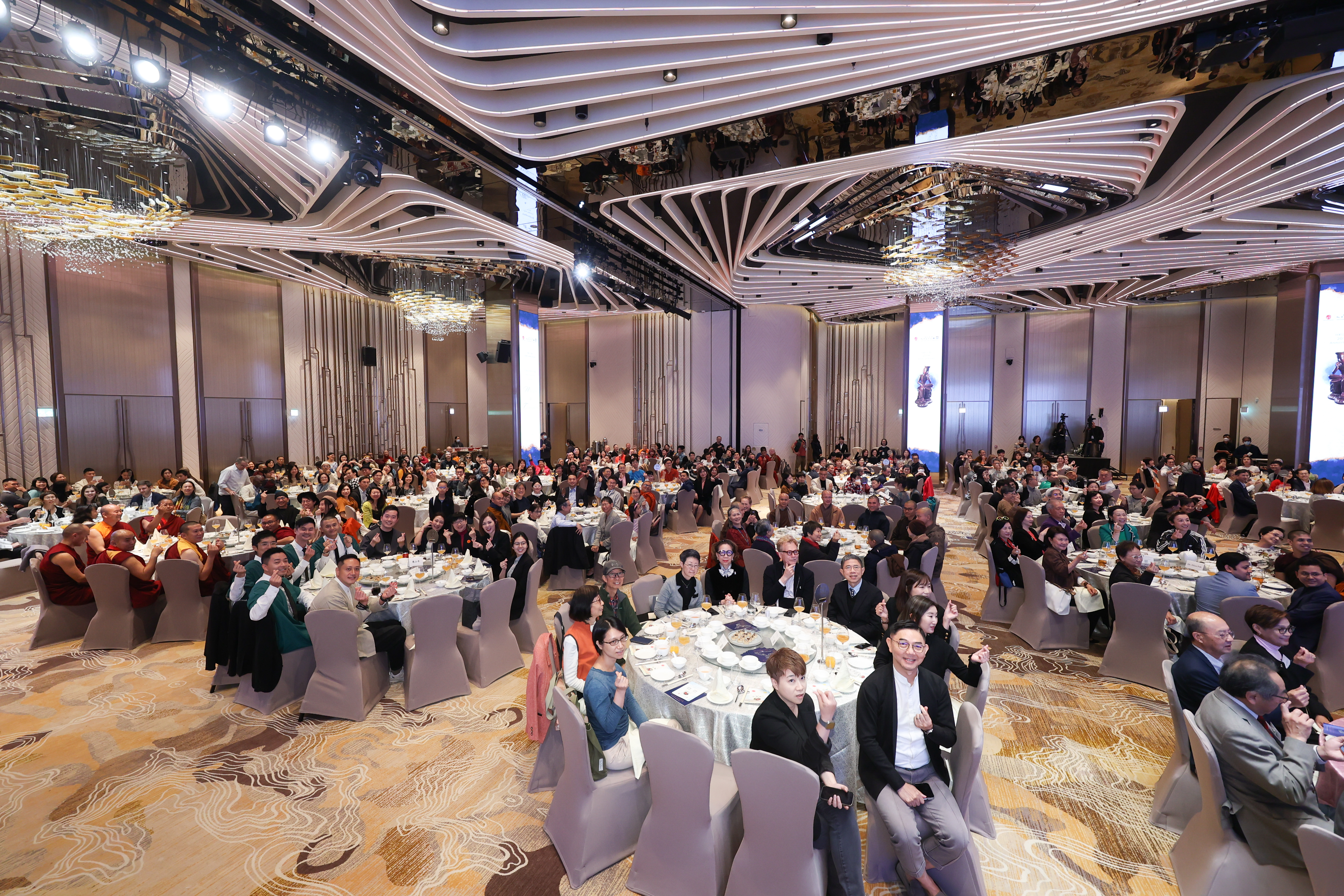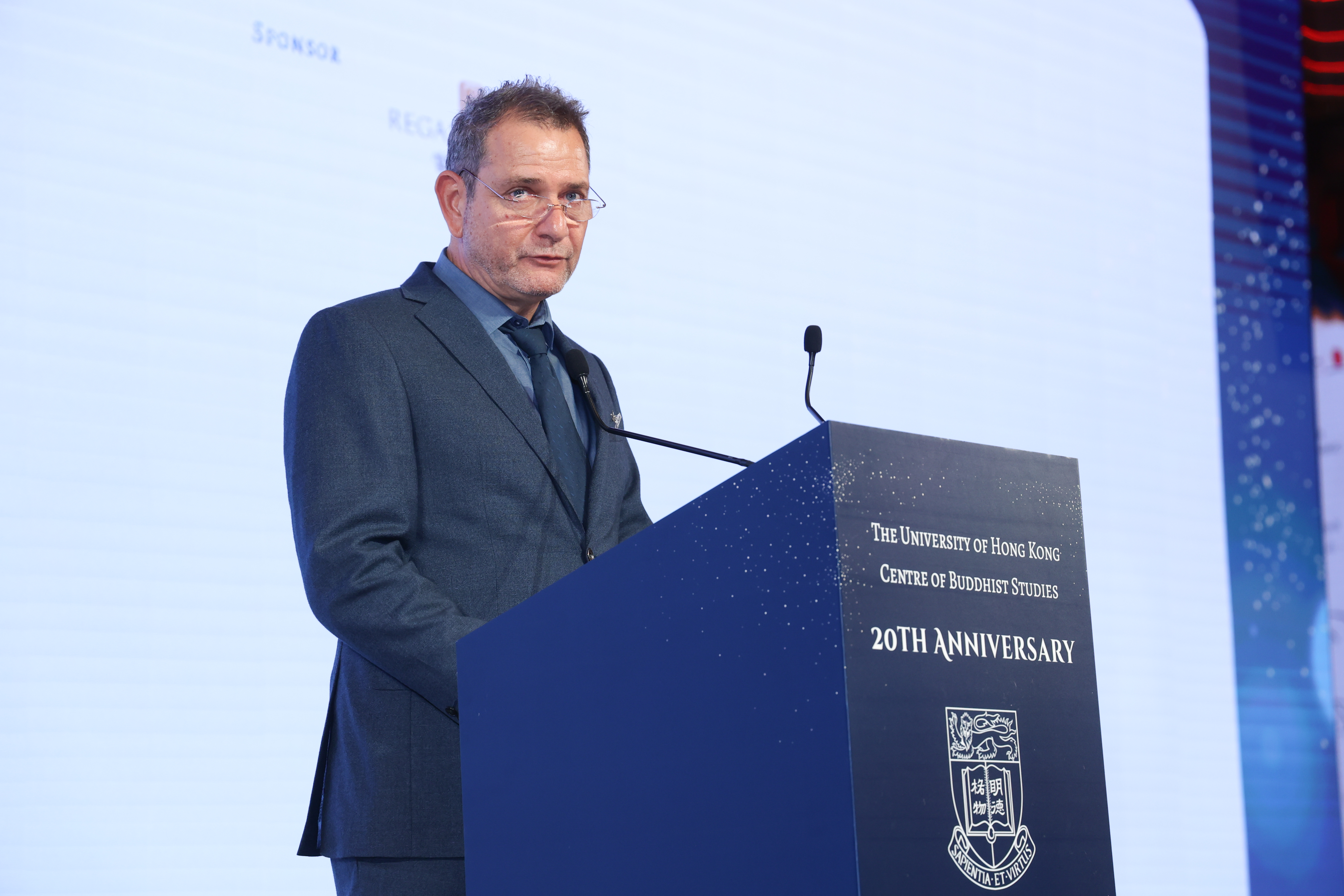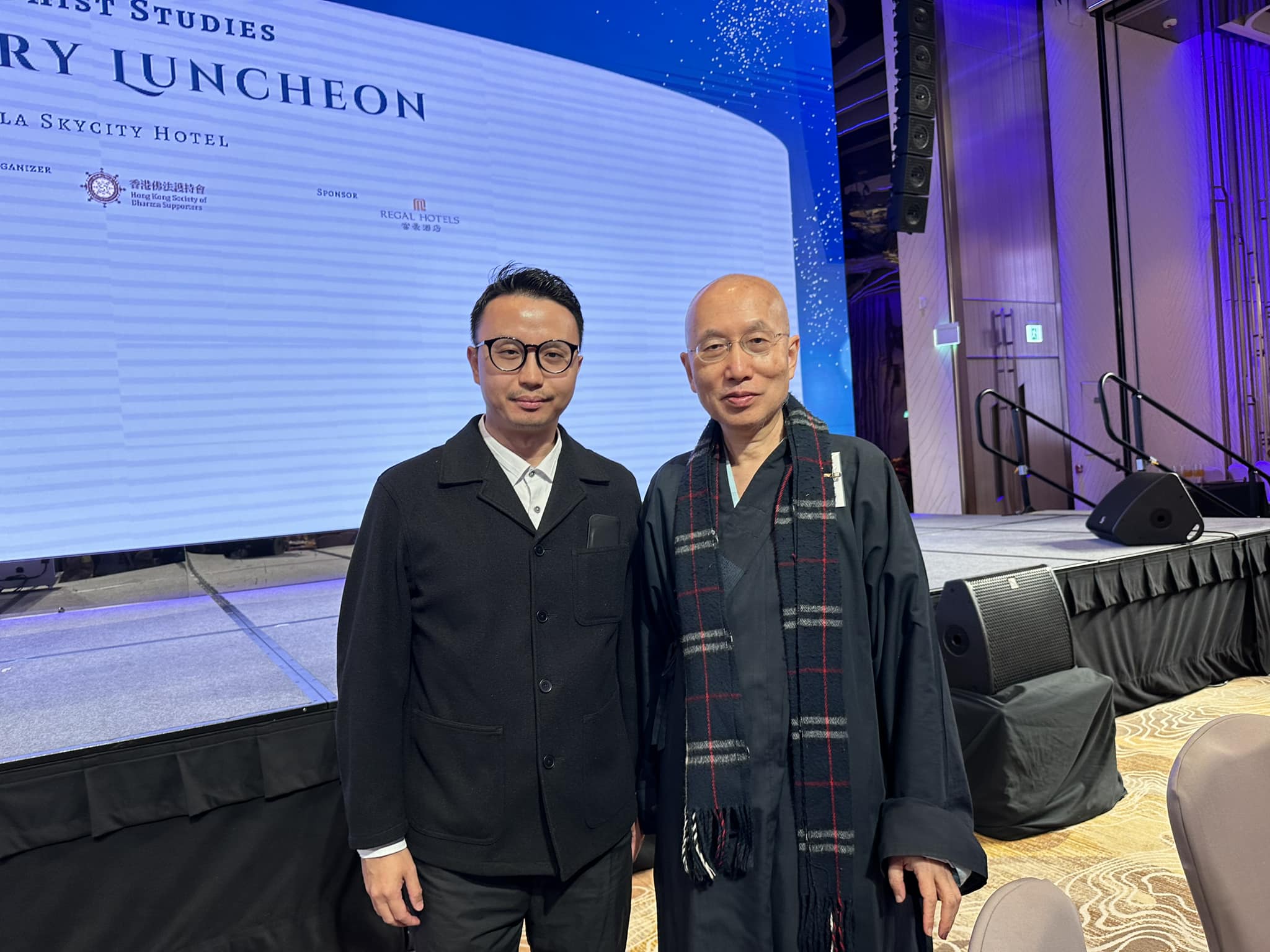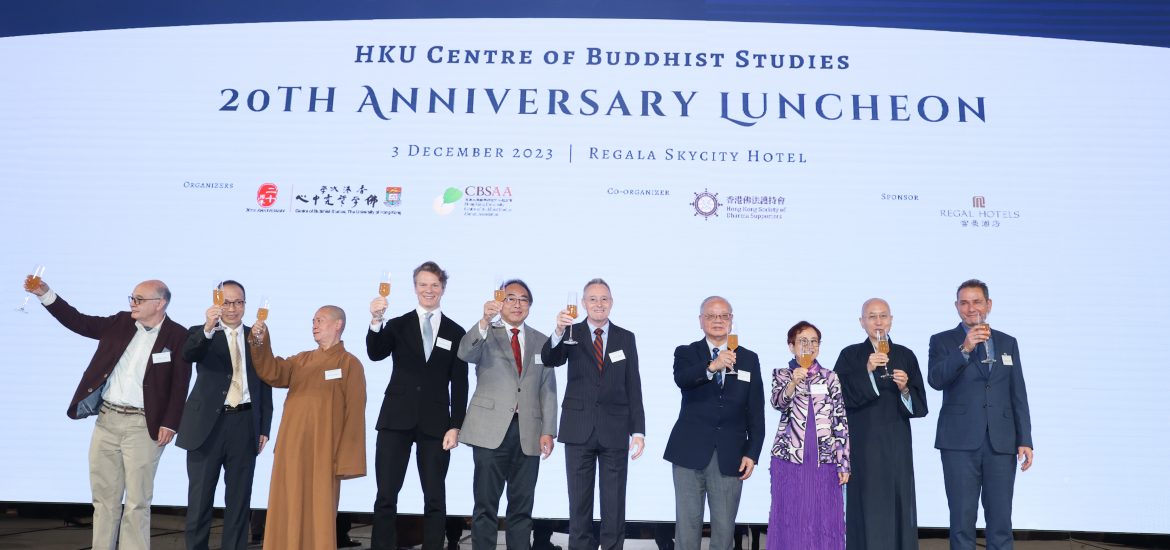Despite never having been an alumnus of the Centre of Buddhist Studies, it was a delight to attend its grand 20th anniversary on 3 December. The circle of CBS is vast, and it felt like returning home to multiple sub-communities of friends and associates, from counselling to Pali studies to Dunhuang research. There were performances encompassing the shakuhachi, Plum Village’s English-language monastic choirs, chanting by the Buddha-Dharma Centre of Hong Kong, and Dharma Drum’s stellar taiko ensemble. Old friends assembled to congratulate the Centre and its staff and students for two decades of educating Hongkongers and people from around the world about the profound depths of the Buddhist tradition.

I have known and worked with, with varying degrees of familiarity, most of the directors at CBS. I remember Ven. Jingyin, who I worked under briefly as a Mahayana Buddhism teaching assistant. In recalling CBS’s various directorship styles over the past twenty years, I particularly have in mind Ven. Hin Hung. Over 13 years ago, after my BA, I was thinking over where would be an ideal place to do postgraduate Buddhist Studies. At some point I was told that Ven. Hin Hung had read Buddhist Studies at SOAS, and I somehow got the idea that there was a tradition for Hong Kong Buddhist leaders, academics and religious professionals to go to SOAS.

This was a completely made-up and incorrect impression regardless of SOAS’s genuinely solid reputation, but my self-imagined delusion brought me there anyway. So in a small and weird but very real way, I owe the Venerable a debt for my lifelong academic interests and, indeed, my present work. To me, my experience has been one of the many global ripples that touch CBS and institutions of similar interests.

Each director confronts the challenge of keeping the center financially healthy. Ven. Hin Hung attracted a considerable base of students by touting “sustainable happiness” as both a state of mind and scholarly aspiration. Since then, this paradigm has served its purpose and it is time for a new approach to the needs of Buddhist Studies in 2024 and beyond. Dr. Giorgios Halkias, the present director, favors the privileging of “wisdom and compassion” as time-honored Buddhist concepts that are needed more than ever in our exceptionally troubled world. Thanks to his stewardship, the CBS team is in high morale and confident in the Center’s vision. It is fitting that we celebrated its 20th Anniversary under his watch.


